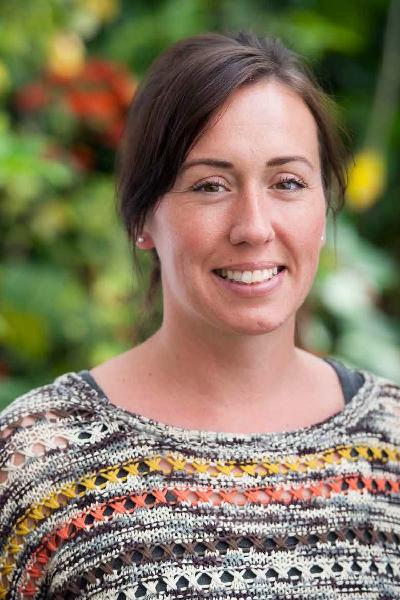Sieglind Wallner Hahn
Forskare vid Institutionen för geovetenskaper; Naturresurser och Hållbar utveckling
- Telefon:
- 018-471 84 53
- Mobiltelefon:
- 076-249 61 85
- E-post:
- sieglind.wallner-hahn@geo.uu.se
- Besöksadress:
- Campus Gotland, Cramérgatan 3
621 57 Visby - Postadress:
- Uppsala universitet, Campus Gotland
621 67 Visby
Mer information visas för dig som medarbetare om du loggar in.
Kort presentation
I am interested in social-ecological systems research and holistic coastal management for increased sustainability and human wellbeing. I am an ecologist by training and like to use practice-oriented and interdisciplinary approaches that can advance a sustainable development.
Nyckelord
- marine ecology
- natural resource management
- resilience
- seagrass
- small-scale fisheries
- social-ecological systems
- sustainability
- sustainable fisheries
Biografi
I have done my undergraduate studies in Biology at Karl Franzens University in Graz, Austria.
I gained a Master of Science degree in Ecology at the Department of Systems Ecology in 2011.
During the work included in my PhD research (2012-2017), I was able to gain experience from extensive field work and research in East Africa, an area where coastal communities are to a high extent dependent on marine resources. There, I investigated social-ecological elements of small-scale fisheries which can contribute to a transformation of the currently unsustainable and degraded small-scale fisheries to more just and sustainable ones which can secure local people’s future livelihoods. For this research, I focused on fishing communities and the importance of associated seagrass beds. With the findings of this project, I proposes practical management approaches and institutional arrangements contributing to improved governance and sustainability of small-scale fisheries to secure local livelihoods in the long-run. I defended my PhD thesis successfully in 2017 at the Department of Ecology, Environment and Plant Sciences, Stockholm University.
Forskning
My research focus is on transformations towards a just and sustainable use of marine resources and coastal management. I believe in the importance of giving resource users a voice by demonstrating their perspectives, and am interested in practical co-management approaches, policy development and governance improvements on different scales which contribute to sustain and improve food security, human wellbeing and reduced poverty.
Ongoing projects
- Coastal management and a sustainable resource use in the Baltic Sea area
During my current post-doc employment, I widened my scope from small-scale fisheries to other examples of human-nature interactions and developed empirical studies with the island of Gotland as a case study site. This includes an interview study with tourists, investigating perceptions of nature values on Gotlandic beaches, including an assessment of social values of the sea and coast. Further, I am working on studies on seafood preferences and the importance of locally produced sustainable seafood for consumers, as well as on Gotlandic subsistence fishers in a changing environment.
- Blue-green transformations of small-scale fisheries: Fishers’ perspectives
In 2023, I will start to work on my newly Forte-funded research project which uses a transdisciplinary and transformative research approach focusing on small-scale fisheries in the Global North.
The overall aim of the project is to investigate if small-scale fisheries can transform, and by doing so fulfill their potential to contribute to a larger transition towards social-ecological as well as economic sustainability. We will empirically assess current and potential future transitions in the case of Swedish SSF, focusing on fishers’ perspectives. The project puts forward three research questions: (i) What are the opportunities and hinders for transitions of SSF in the Global North? (i) When and how can fishers realize these opportunities? And (iii) What are the social, ecological and economic implications of SSF transitions in the Global North? The results of research will generate a deeper understanding of transitions which are already taking place, as well as knowledge that could contribute to and prepare for future transitions of SSF. As such, we hope this research will build a crucial knowledge-base for facilitating future fishers’ green-blue transitions towards increased social-ecological and economic sustainability. Further, we hope that the findings of this research will contribute positively to the continuity of small-scale fisheries and their related culture, identity and livelihoods.
- Cooperation with Baltic 2030 and the Baltic Sea Science Center at Stockholm University within the project “Living Bays”
The overall objectives of the project are:
1) To restore a number of shallow sheltered bays, by local measures, and to regain functioning ecosystems with good water quality, abundant and healthy flora and fauna, and better conditions for recreation, in a number of shallow bays. 2) To develop concrete recommendations for measures and costs, based on thorough evaluation of the response of measures of the bays. The measures are expected to be feasible for property owners, communities, boat clubs and municipalities. 3) To disseminate the results and recommendations of the project to increase and facilitate measures in other shallow sheltered bays.
I am involved in social-ecological studies investigating cultural and social values of shallow bays as well as the social aspects of the restoration processes.

